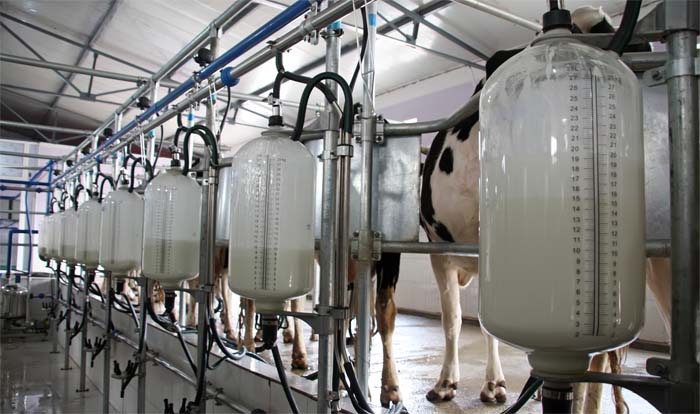
With the typical UK dairy farm milking around 120 cows a day and producing over 900,000 litres of milk a year, farmers have a real need to find more energy-efficient heating and cooling technology. Heat is used in the process of extending the milk’s shelf life and ensuring it is in good condition when it reaches stores. These are not the only energy-hungry aspects of dairy farming and as energy costs rise, so does the burden on farmers.
Here Brent Hall, Technical Manager at ICS Cool Energy discusses how modern heat recovery technology and energy efficient chillers are easing the load, by providing dairy farmers with cost savings of up to 45%.
“The electrical and mechanical processes used in the production of a resalable product within the dairy industry generate a considerable amount of heat from a variety of applications including cooling and pasteurising of milk, as well as washing and sanitising containers and equipment. To maintain the quality of fresh milk, it must be quickly cooled from around 35°C to 3°C; this cooling process produces large amounts of excess heat which is often expelled into the atmosphere unless it can be properly managed on site.
The energy efficient solution is a system that integrates air cooled chillers which incorporate full heat recovery options enabling the complete recovery and re-distribution of any excess heat.
ICS Cool Energy offers a comprehensive portfolio of cooling equipment, all capable of cooling milk down to its target temperature in the required time period whilst achieving exceptional energy efficiency levels. Many models are able to utilise the otherwise rejected excess energy from the cooling process to support the heating and sanitising of produce and equipment as well as in the heating and ventilation of other working areas.
In 1995, we supplied TAE Chiller units to TD Goodall, a Yorkshire based dairy farm, where the high volume of milk production meant that cost and energy savings were becoming of paramount importance. To this day, the chiller is going strong, requiring only minor maintenance.
Heat recovery can help to reduce the energy consumption of a primary process and provide heat to alternative secondary processes, cutting down both gas and electricity costs. It can be hugely beneficial to farming sites with a process producing waste heat in any capacity, farmers don’t always recognise how many heating requirements there are on site which could benefit from this technology.
We’ve worked with a number of other dairy farms, including one which has recently saved almost half of its energy costs by switching to heat recovery technology and with a three year extended warranty service contract, we can ensure that the equipment is fully maintained 24/7 minimising energy consumption.”
